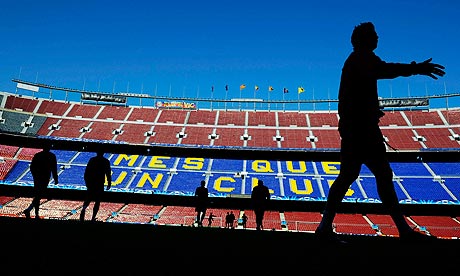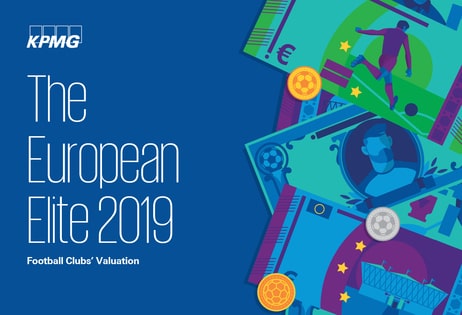Speaking at the International Football Arena conference in Zurich on football's financial pressures, Rosell said clubs should naturally be mutual "associations" owned by their members, rather than companies owned by a single business figure. He suggested the reason Barcelona sold their shirt sponsorship for the first time, controversially to Qatar, whose sports investment arm paid €166m (£140m) for five years' rights, was due to competition with owners putting excessive money into their clubs.
"It is a pity," he said of overseas and corporate club ownership. "I don't like it but it's happening. It's the open market. In the Premier League there are no more clubs to be sold so now they [overseas investors] are coming to Spain. It has gone so far now, I do not think anything can be done about it.
Barcelona is not a business, it is a feeling. We are not owned by anybody, says club president.
"Barcelona is not a business, it is a feeling. We are not owned by anybody, we are an association; we do not have 'clients'. I will never put a game on at 12 noon for the Chinese audience. We do want to open up our market but not to forget our roots. While I am the president, Barcelona will never, ever be for sale."
Nic Coward, the Premier League's general secretary, speaking on the same panel, defended the open approach which has led to England's biggest clubs being majority-owned by single individuals based abroad. "We operate an entirely neutral attitude to different models of ownership," he said.
Asked about the varying impact of those models, one of which has seen £473m drained out of Manchester United in interest, bank fees and charges to pay for the 2005 takeover by the US-based Glazer family, Coward said: "Clearly the Glazers' model at Manchester United is legitimate, because they have not breached any rules."
Coward argued that the TV income sharing arrangements put in place in 1992 when the then First Division clubs broke away from the Football League to form the Premier League, had laid the foundations for success and popularity. He said when Ian Ayre, Liverpool's managing director, said recently the big clubs should keep more of the overseas TV money, "Nineteen clubs to one were against it and it did not have to be put to the vote."
Rosell defended the sponsorship of the Barcelona shirts by the Qatar Foundation after more than a century of remaining clear, followed by five years in which Barcelona wore the name of the charity Unicef. He said it had been done because of financial pressures. "It is entirely sponsorship," he said.
"The fact that it comes from a country is no different to a commercial sponsorship. If we did not have to fight against competition which has capital, I would never sell anything on the shirt. It would be virgin."
Rosell accepted, however, that smaller clubs in Spain have suffered severe financial difficulties partly due to their own impossible chase to compete with the giant finances of his own club and Real Madrid. He accepted that the two big clubs must move within the next few years to selling their television rights collectively with the other clubs.
At present, Barcelona and Real Madrid keep 66% of La Liga's total television income, leaving just over one-third to be shared between the other 18 clubs. Several Spanish clubs, including Racing Santander and Real Zaragoza, have entered bankruptcy proceedings recently, and in a period when the national team are World Cup winners and Barcelona the European champions, La Liga opened to a threatened strike from players whose wages had not been paid.
"The television rights are negotiated individually now, but in three, four, five years' time, we will have to put them all in one pot and make La Liga as it is in Italy and the Premier League," Rosell said. "We and Real Madrid are talking to the rest of the clubs. We understand this is the future and it has to happen. But I believe we must reduce the number of clubs in La Liga, from 20 clubs to 16."
Umberto Gandini, the Milan director, said bluntly that in Italy, where Serie A was the foremost European competition 20 years ago, football is now "definitely in a state of crisis" largely because of outdated grounds and a paralysis of leadership. He said Milan's owner, Silvio Berlusconi, who became the country's prime minister after achieving success with the club, has put in around €600m (£514m) via his company, Fininvest, since taking a bankrupt club over in 1986.
Gandini said Uefa's "financial fair play" rules, which require clubs in 2014 European competition to break even, embody laudable aims.
However, he said it will be "very difficult" to apply the rules across a continent where so many clubs, 46% of those in the top divisions – including 16 out of the 20 Premier League clubs last year – currently make losses.{jcomments on}
 IN ENGLISH
IN ENGLISH 









































